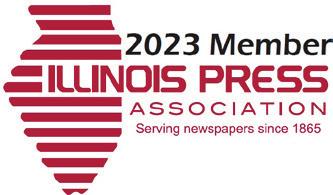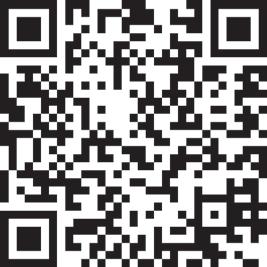

Nearly 300 New Illinois Laws Take Effect In 2025
They include digital driver’s licenses, salary transparency and health insurance changes
By BEN SZALINSKI
Capitol News Illinois
Time to study up, Illinois. When the clock hits midnight on New Year’s Day, 293 new state laws will take effect.
Those include some of the defining bills of the 2024 legislative session and others that will change how people get IDs, evaluate job postings and even cancel gym memberships.
In addition to the laws taking effect on Jan. 1, the state’s minimum wage will rise to $15 to complete a ramp up initiated during Gov. JB Pritzker’s first month in office in 2019.
Digital driver’s licenses
The secretary of state can begin creating a process to issue digital driver’s licenses and state IDs beginning in the new year after Pritzker signed House Bill 4592. Residents will still be required to receive a physical ID and agencies or private entities will not be required to accept digital IDs in place of physical IDs.
Providing a phone to police to show a digital ID also doesn’t give police consent to search a person’s cell phone.
Salary transparency
Employers with 15 or more employees must include information about benefits and the salary range on job postings, according to House Bill
vfpress.news

Gov. JB Pritzker holds a shirt commemorating the movement to raise the minimum wage to $15 after signing the bill on February 20, 2019. The wage hits $15 in 2025.
Illinois’ Minimum Wage To Increase To $15
On Jan. 1, Completing 6-year Transition
The 2019 law was Pritzker’s first major legislative victory
By BEN SZALINSKI Capitol News Illinois
The minimum wage in Illinois will increase to $15 an hour on Jan. 1, completing a six-year transition period since the increase was approved in 2019.
Beginning New Year’s Day, Illinois workers making minimum wage will see wages rise by $1 and tipped workers will see their paychecks bump to $9 an hour. Youth workers under 18 who work fewer than 650 hours a year will have a $13 minimum wage.
The final increase, ending a six-year
ramp which began with the minimum wage rising from $8.25 to $9.25 on Jan. 1, 2020, puts a bow on Gov. JB Pritzker’s first major legislative victory. He signed the wage increase in February 2019 about a month af-
CAPITOL NEWS ILLINOIS PHOTO BY JERRY NOWICKI

Publisher/CEO Michael Romain
Chief Operations Officer Kamil Brady
Creative Designer Shanel Romain

HOW TO REACH US
John Wilk Communications, LLC
3013 S. Wolf Rd. #278
Westchester, IL 60154
PHONE: (708) 359-9148
VFPress.news
TWITTER: @VILLAGE_FREE
FACEBOOK: @MAYWOODNEWS

Bill aims to reduce state requirements for name changes
Sponsors cite safety concerns for victims of domestic abuse, transgender people
By ATMIKA IYER Medill Illinois News Bureau
SPRINGFIELD — Illinois lawmakers in early January could consider easing requirements for residents to change their names, a move proponents say will reduce risks for victims of domestic abuse, transgender residents and others.
The measure must clear the full Senate in the first week of January to reach Gov. JB Pritzker’s desk. Otherwise, it must go through the entire legislative process again after a new General Assembly convenes Jan. 8.
don’t disappear from court records and are not sealed, but rather are selectively available to the involved parties.
“So it’s not a complete sealing. There will still be access to parties and by the clerk, as well,” Ziri said. “In my experience, working with communities, folks who say they’ve experiencing hardship and heartache, they’re not making that up, and they want protection for very good reasons.”
The Republicans who hold a minority in the state senate questioned whether noncitizens with a criminal record could change their names to evade legal consequences as a result of the lowered requirements for a name change.
The Village Free Press is published digitally and in print by John Wilk Communications LLC. The print edition is distributed across Proviso Township at no charge each week. © 2025 John Wilk Communication LLC

House Bill 5164 would eliminate the requirement to publish name changes with a local newspaper. It would also reduce the state residency requirement of people wanting to change their name from six months to three months.
“There are residents in our state who do not feel safe when they are an adoptee; they’re transgender; they’re an immigrant; they’re a survivor of domestic violence, survivor of sexual exploitation and human trafficking,” Sen. Ram Villivalam, the bill’s sponsor and a Chicago Democrat, said in an interview. “So they would like to change their name, and in doing so, we need to remove as many barriers as we can to ensure their health and safety.”
The goal of the bill is to decrease threats to people who have endured domestic abuse, discrimination and other threats to their safety. Villivalam said 24 states have already eased this requirement. Planned Parenthood, Equality Illinois and Brave Space Alliance are pushing for the change.
But the Senate’s top Republican, Sen. John Curran, R-Downers Grove, pushed back against the bill. He argued that impounding the records, meaning restricting access to them, should have a higher threshold.
Individuals are allowed to petition the court to impound records if they believe public disclosure would put them in harm’s way. That process allows individuals to self-attest to hardships and says they may – but are not required to – submit documentation.
“Why make it permissive, rather than a requirement, to attach relevant documents to the petition,” Curran said during a November committee meeting.
But Mike Ziri, the director of public policy at Equality Illinois, said impounded records
“Is this creating a loophole for people who are here, who are criminals and part of things involved in the trafficking, involved in all of these nefarious activities that we’ve been reading about?” Sen. Sue Rezin, R-Morris, said.
Ziri said that the self-attestation was for impounding the court records of name changes, not to get the name change itself. Illinois law states that people on the sex offender registry, arsonists and people on the murderer and violent offender against youth list are barred from seeking name changes. The exceptions are marriage, religious reasons, human trafficking or gender identity. He also said a name change still requires the signature of a judge, and the process can take months.
“Changing your name does not allow you to escape the criminal record. That was legislation that was passed two years ago,” Ziri said. “That’s on top of the other requirement state police already have to check the criminal records with the name change granted months later.”
Villivalam said this bill takes Illinois “another step forward” in ensuring the health and safety of residents.
“Now, more than ever – given the rise in hate and discrimination across the board – people you know feel targeted. So the legislative work that we can do to reassure them on their safety and health is part of our job,” Villivalam said in an interview. “As people continue to feel the hate, feel the discrimination, get targeted, we need to continue to take these steps to make sure they feel healthy and safe.”
Atmika Iyer is a graduate student in journalism with Northwestern University’s Medill School of Journalism, Media, Integrated Marketing Communications, and a Fellow in its Medill Illinois News Bureau working in partnership with Capitol News Illinois.
State could adopt ‘kin-first’ approach to foster care
Measure passed Senate unanimously, awaits House action
By AMALIA HUOT-MARCHANDAND Medill Illinois News Bureau
SPRINGFIELD – Illinois lawmakers could soon make it easier for children in foster care to live with their relatives or other people close to them.
Child welfare experts have long touted the benefits of foster children staying with kin. Advocates say those arrangements offer children more stability, decrease the trauma they experience, improve their mental health and reduce the number of times the child is moved from home to home.
But both state and federal law often made those placements impractical. To get paid to support the children, relatives had to follow the same stringent rules that apply to other foster parents. They go through a rigid home inspection with bedroom size requirements, as well as restrictions on the number of people and gender of individuals who can sleep in the same bedroom. Prospective parents also go through lengthy classroom training.
In 2023, though, the federal government decided to allow states to use separate standards for relatives of children in foster care than for other foster parents, in an effort to pair more children with relatives.
Now, Illinois lawmakers are moving forward with a plan to do just that, along with making other changes that will encourage the placement of children with relatives. The Illinois Senate unanimously approved the measure, known as the Kinship in Demand, or KIND Act, in the fall. But the House must sign off on the changes by the time it adjourns in early January, otherwise the bill must go through the entire legislative process again to reach the governor’s desk.
“I think it’s really important that we reckon with how unjust our systems have been in foster care,” said state Sen. Mike Simmons, D-Chicago, one of the bill’s 15 co-sponsors in the upper chamber. “It’s an excellent step forward in terms of respecting the integrity of the families these kids come from, that includes their immediate family but also their extended kin that love them.”
WE’VE STEPPED OUR GAME UP EVEN MORE.







Illinois’ record
Close to 10,000 children – or more than half of the total number of kids in the care of the Illinois Department of Children and Family Services – live with family members.
But more than 60% of those families are not eligible for monthly foster care payments, annual clothing vouchers, or foster care support groups according to the ACLU of Illinois.
“Support for kin, for relatives who have not received the same kind of support that foster parents do, for example – I’m talking about monetary support – I think is a very important component of dealing with the amount of time a child spends in the custody of DCFS. We want to make sure they get back to a home environment as fast as they can, and this is a way to encourage that,” said Illinois Gov. JB Pritzker, a Democrat, in a news conference on Dec. 11.
Casey Family Programs, the nation’s largest foundation focused on foster care, states that prioritizing relative caregivers decreas-
es sibling separation, reduces the risk of abuse and gives a higher chance of achieving permanency.
Placing foster children with relatives could also help Illinois do a better job in finding permanent homes for children in its care. Illinois’ foster care system ranked in the bottom third of states in 2019 for children placed in permanent homes, according to the U.S. Department of Health and Human Services. Between 2017 and 2021, the number of children who were placed in a permanent home decreased by 7.8%, according to the 2021 Child Welfare Outcomes Report to Congress.
KIND Act’s changes
The KIND Act would allow DCFS to pursue additional federal funding in order to apply a kin-first approach. DCFS would use the federal money to put more effort into finding families of foster children, notifying them and improving support services, as well as doing background and identity checks.






Whether you’re an elite athlete or simply enjoy being active, Dr. Hur will accurately diagnose and treat your unique condition, helping relieve pain and restore function to your foot and ankle.
Areas of Expertise:
• Minimally invasive foot and ankle surgery
• Total ankle arthroplasty
• Deformity correction
• Sports-related injuries
• Fracture care

Schedule an appointment in Joliet, Westchester, or Chicago.
NEW LAWS Coming up
from page 1
3129. The law will also apply to businesses hiring for remote work positions in Illinois.
“When employers aren’t transparent about pay, gender and racial wage gaps widen, costing women and people of color valuable compensation,” Lt. Gov. Juliana Stratton said in a news release. “Illinois’ new Pay Transparency law is a resounding win for the working people who call our state home.”
‘Junk’ health insurance
Short-term, limited duration health insurance plans will be illegal in Illinois beginning Jan. 1. The plans, often called “junk insurance” by critics, do not meet the minimum standards of the federal Affordable Care Act.
The ban outlined in House Bill 2499 was part of Pritzker’s health insurance overhaul that lawmakers passed in the spring. It was aimed at reducing barriers to care for patients and making health care more affordable by expanding coverage requirements for insurance companies.
Short-term insurance plans are typically for people who have a lapse in health insurance coverage such as when they lose or change jobs, but they are different from COBRA benefits, which most employers are required to offer under federal law. Supporters of the bill argued the plans are deceptive and stick consumers with huge out-of-pocket costs, but others said the plans provide consumers with an affordable option to fill a gap in coverage.
Caregiver discrimination
House Bill 2161 adds family responsibilities to the list of categories protected from discrimination and retaliation in the workplace. The new law prevents employers from taking adverse action against employees because of their responsibilities as a caregiver for a family member, which could cause them to miss work.
Bill sponsor Rep. Will Guzzardi, D-Chicago, told a House committee in April that pregnant women are a good example of who the bill is designed to help. He said pregnant women shouldn’t be passed up for a promotion or face other consequences at work in anticipation that they will be taking time off to care for their baby. Guzzardi stressed the bill does not protect employees who fail to meet job performance requirements.
AI regulations
New laws governing artificial intelligence take effect Jan. 1. It will be illegal to gener-

Nearly 300 new laws will take effect in Illinois in 2025.
ate child pornography using AI, according to House Bill 4623. Supporters of the bill, including the Illinois Attorney General’s Office, said it is becoming more difficult to distinguish between real and AI-generated images. They said updating Illinois’ child pornography laws was a necessary to step allow law enforcement to identify and prosecute child pornography cases.
House bill 4875 also adds new protections to prohibit using AI to recreate a person’s voice, image or likeness for commercial purposes without the person’s consent. Recording artists can seek damages for violations of the law.
Politics and religion at work
Employees can’t be required to sit through work meetings discussing religion or politics starting Jan. 1. Senate Bill 3649, an initiative of the Illinois AFL-CIO, creates new protections for employees who skip out on such meetings and prevents employers from retaliating against them.
The law does not prohibit discussing religion or politics at work, but employees are not required to participate in the discussions if such activities are not part of their job. The law excludes non-profit and advocacy groups where politics or religion may be part of job.
Coming later in 2025
Pritzker’s signature health reform package goes into effect on Jan. 1, but most provisions don’t have to be implemented until the beginning of 2026. House Bill 5395 bans “step therapy,” which requires patients to try and fail treatments preferred by insurance companies before they can receive the treatment recommended by their doctor.
It also bans insurance companies from requiring prior authorization for emergency in-patient mental health treatment, requires insurers to keep up-to-date lists of in-network providers and expands the power of the Illinois Department of Insurance to regulate premium rates.
Many hotels in Illinois will no longer be allowed to provide customers with single-use plastic soap and shampoo beginning July 1 under Senate Bill 2960. The move is designed to cut down on waste from single-use products. The Illinois Hotel & Lodging Association supported the change. Hotels with fewer than 50 rooms have until 2026 to make the change.
Other new laws
NIL money: Student athletes at NCAA universities can earn name, image and like-
ness money directly from their universities. House Bill 307 was an initiative of the University of Illinois.
Hearing aids: Insurance providers must cover medically prescribed hearing aids for all people under House Bill 2443. Coverage was previously only required for those under 18.
Gym memberships: House Bill 4911 requires gyms and fitness centers to accept multiple ways for people to cancel their membership. Physical fitness locations also must now allow customers to cancel their membership by email or online. Customers will also be allowed to submit written notice for canceling their membership by mail.
Subscription renewals: Businesses that offer a free trial or promotional period for their product or service must notify customers at least three days before the subscription automatically renews at a paid rate under Senate Bill 2764. The law only applies to subscriptions longer than 15 days.
Crime victim DNA: DNA evidence collected from a person who is the victim of a crime to aid a criminal investigation cannot be entered into a DNA database, according to House Bill 1168.
CAPITOL NEWS ILLINOIS PHOTO BY ANDREW ADAMS


Hey Business Owners!


MINIMUM WAGE
Increased
from page 1
ter being sworn in for his first term, checking off a top campaign promise.
“Since day one of my administration, I’ve made it my mission to build an economy that works for everyone and raising the minimum wage to $15 an hour fulfills that promise to our working families,” Pritzker said in a statement. “This increase honors the workers who power our state and ensures they can better support their families, bringing us closer to a stronger, more equitable economy for all.”
Illinois will be one of 10 states with a minimum wage of $15 or greater, according to the National Employment Law Project. Twenty-two other states are also increasing their wages on Jan. 1.
The minimum wage increase is one of many economic changes that have happened since 2019, including effects of the pandemic, Illinois Chamber of Commerce CEO Lou Sandoval told Capitol News Illinois. He said those have caused businesses to adjust their operations in a variety of ways, such as increasing automation.
“I think you’re starting to see businesses pivot in terms of how they’re adjusting,” Sandoval said. “You’re seeing this at the national chains.” Some restaurants, for example, are “moving away from larger sitdown areas into grab-and-go.”
Illinois job growth has been slow since October 2019, according to a November report by the Commission on Government Forecasting and Accountability. The state has seen a net increase of 28,700 jobs from October 2019 through October 2024. That’s a growth rate of 0.5%, compared to the national rate of 4.9%.
The rate of new job postings by businesses at the beginning of the year will shed some light on how the jump to $15 on Jan. 1 is impacting business operations, Sandoval said.
To help small businesses with the change, the state provides a tax credit through 2027 to businesses with 50 or fewer employees for wages paid to minimum-wage workers.
The 2019 minimum wage law marked the first increase since the wage hit $8.25 in 2010. Senate Majority Leader Kimberly Lightford, D-Westchester, introduced a bill to raise it to $15 an hour in 2017 that was passed by the General Assembly and vetoed by Republican Gov. Bruce Rauner. Lightford sponsored the initiative again in 2019.
“As a state, we have helped countless workers make ends meet, reduce financial stress, and provide a more solid foundation for their futures,” Lightford said in a statement. “The $15 minimum wage is a testament to our commitment to economic justice and our belief that everyone who works full time deserves a living wage.”
The value of a $15 minimum wage, however, has changed since lawmakers acted in 2019. A person making $8.25 in February 2019 would need to earn $10.30 today to have the same buying power after inflation, according to the Consumer Price Index. A $15 hourly wage today has the buying power that $12.02 had in February 2019. A person would need to make an $18.72 wage today to have the same buying power that $15 had in February 2019. Top Democrats didn’t say if they will push for new increases.
“As a Senator of 25 years, history has shown my commitment of fighting to ensure workers are paid a living wage. That commitment still holds strong today,” Lightford said in an email statement.
Pritzker said he supports ideas that will help workers make more money, but didn’t commit to supporting any plan to raise the minimum wage further when pressed about it at a news conference Dec. 11.
“We always are thinking about how do you balance the need for higher wages with the needs that businesses have to hire people and do it affordably. But I think we did it the right way when we did it back in 2019,” Pritzker said.
The new $15 wage equates to a 40-hourper-week annual salary of $31,200 before taxes. That equals the federal government’s poverty level for a four-person household. The poverty level is $15,060 in a single-person household.
But according to calculations in a national project by the Massachusetts Institute of Technology, $15 hourly still doesn’t equate to a “living” wage in Illinois, based on U.S. Census Bureau cost of living and other cost estimates provided by federal agencies adjusted for inflation.
A single adult with no children needs a $22.86 hourly salary to make a living wage in Illinois, while a two-parent household with two working adults and three children would each need to earn $31.69. In a two-parent household with one working adult and one child, the worker needs $36.49 to make a living wage, according to the MIT project.
Inflation is making it hard for workers to benefit from wage increases, Sandoval said, adding rising wages also cause businesses to raise prices.
“They might get the wage increase on one side, but their cost of living goes up accordingly,” Sandoval said.

IN THE CIRCUIT COURT OF COOK COUNTY, ILLINOIS COUNTY DEPARTMENTCHANCERY DIVISION CITIMORTGAGE, INC., Plaintiff, -v.ELIDIA R MARTINEZ AND RICARDO
MARTINEZ Defendants. 23-CH-03024
413 N. EAST END AVE, HILLSIDE, IL 60162
NOTICE OF SALE PUBLIC NOTICE
IS HEREBY GIVEN that pursuant to a Judgment of foreclosure and Sale entered in the above cause on 5/3/2024, an agent of Auction.com LLC will at 12:00 PM on January 29, 2025 located at 100 N LaSalle St., Suite 1400, Chicago, IL 60606, sell at public sale to the highest bidder, as set forth below, the following described real estate.
Commonly known as 413 N. EAST END AVE, HILLSIDE, IL 60162
Property Index No. 15-07-413-0090000 The real estate is improved with a Single Family Residence. The
judgment amount was $224,690.70 Sale Terms: 20% down of the highest bid by certified funds at the close of the sale payable to Auction.com LLC, No third party checks will be accepted. All registered bidders need to provide a photo ID in order to bid. The balance, in certified funds/or wire transfer, is due within twenty-four (24) hours. (relief fee not required) The subject property is subject to general real estate taxes, special assessments, or special taxes levied against said real estate and is offered for sale without any representation as to quality or quantity of title and without recourse to plaintiff and in “AS IS” condition. The sale is further subject to confirmation by the court. Upon payment in full of the amount bid, the purchaser will receive a certificate of sale that will entitle the purchaser to a deed to the real estate after confirmation of the sale.
The property will NOT be open for inspection and plaintiff makes no representation as to the condition of the property, prospective bidders are admonished to check the court file to
verify all information. If this property is a condominium unit, the purchaser of the unit at the foreclosure sale, other than a mortgagee, shall pay the assessments and the legal fees required by the Condominium property Act, 765 ILCS 605/9 (g)(l) and (g)(4). If this property is a condominium unit which is part of a common interest community, the purchaser of the unit at the foreclosure sale other than a mortgagee shall pay the assessments required by the Condominium Property Act, 765 ILCS 605/18.5(g-1).
IF YOU ARE THE MORTGAGOR (HOMEOWNER), YOU HAVE THE RIGHT TO REMAIN IN POSSESSION FOR 30 DAYS AFTER ENTRY OF AN ORDER OF POSSESSION, IN ACCORDANCE WITH SECTION 15-1701 (C) OF THE ILLINOIS MORTGAGE FORECLOSURE LAW.
For information, contact Plaintiffs attorney: Heavner, Beyers & Mihlar, LLC (217) 422-1719 please refer to file number 1674389. Auction.com LLC 100 N LaSalle St., Suite 1400, Chicago, IL 60606 - 872225-4985 You can also visit www.
auction.com.
Attorney File No. 1674389 Case Number: 23-CH-03024
NOTE: PURSUANT TO THE FAIR DEBT COLLECTION PRACTICES ACT, YOU ARE ADVISED THAT PLAINTIFF’S ATTORNEY IS DEEMED TO BE A DEBT COLLECTOR ATTEMPTING TO COLLECT A DEBT AND ANY INFORMATION OBTAINED WILL BE USED FOR THAT PURPOSE. I3255947
IN THE CIRCUIT COURT OF COOK COUNTY, ILLINOIS COUNTY DEPARTMENTCHANCERY DIVISION NATIONSTAR MORTGAGE LLC Plaintiff, -v.-
DENISE BANKS, UNKNOWN HEIRS AND LEGATEES OF CAROLINE BANKS, BANK OF AMERICA, NA, BERYL BANKS, WILLIAM BANKS, RANDOLPH BANKS, UNKNOWN OWNERS AND NONRECORD CLAIMANTS, GERALD NORDGREN, AS SPECIAL REPRESENTATIVE
FOR CAROLINE BANKS (DECEASED)
Defendants 2023 CH 07485 217 47TH AVE
BELLWOOD, IL 60104
NOTICE OF SALE
PUBLIC NOTICE IS HEREBY GIVEN that pursuant to a Judgment of Foreclosure and Sale entered in the above cause on July 5, 2024, an agent for The Judicial Sales Corporation, will at 10:30 AM on January 23, 2025, at The Judicial Sales Corporation, One South Wacker, 1st Floor Suite 35R, Chicago, IL, 60606, sell at a public sale to the highest bidder, as set forth below, the following described real estate:
Commonly known as 217 47TH AVE, BELLWOOD, IL 60104
Property Index No. 15-08-222-0130000
The real estate is improved with a single family residence.
Sale terms: 25% down of the highest bid by certified funds at the close of the sale payable to The Judicial Sales Corporation. No third party checks will be accepted. The balance, in certified funds/or wire transfer, is due within twenty-four (24) hours. The subject property is subject to general real estate taxes, special assessments, or special taxes levied against said real estate and is offered for sale without any representation as to quality or quantity of title and without recourse to Plaintiff and in “AS IS” condition. The sale is further subject to confirmation by the court.
Upon payment in full of the amount bid, the purchaser will receive a Certificate of Sale that will entitle the purchaser to a deed to the real estate after
confirmation of the sale. The property will NOT be open for inspection and plaintiff makes no representation as to the condition of the property. Prospective bidders are admonished to check the court file to verify all information.
If this property is a condominium unit, the purchaser of the unit at the foreclosure sale, other than a mortgagee, shall pay the assessments and the legal fees required by The Condominium Property Act, 765 ILCS 605/9(g)(1) and (g)(4). If this property is a condominium unit which is part of a common interest community, the purchaser of the unit at the foreclosure sale other than a mortgagee shall pay the assessments required by The Condominium Property Act, 765 ILCS 605/18.5(g-1).
IF YOU ARE THE MORTGAGOR (HOMEOWNER), YOU HAVE THE RIGHT TO REMAIN IN POSSESSION FOR 30 DAYS AFTER ENTRY OF AN ORDER OF POSSESSION, IN ACCORDANCE WITH SECTION 15-1701(C) OF THE ILLINOIS MORTGAGE FORECLOSURE LAW.
You will need a photo identification issued by a government agency (driver’s license, passport, etc.) in order to gain entry into our building and the foreclosure sale room in Cook County and the same identification for sales held at other county venues where The Judicial Sales Corporation conducts foreclosure sales.
For information, examine the court file, CODILIS & ASSOCIATES, P.C. Plaintiff’s Attorneys, 15W030 NORTH FRONTAGE ROAD, SUITE 100, BURR RIDGE, IL, 60527 (630) 7949876 THE JUDICIAL SALES
CORPORATION
One South Wacker Drive, 24th Floor, Chicago, IL 60606-4650 (312) 236-
SALE
You can also visit The Judicial Sales Corporation at www.tjsc.com for a 7 day status report of pending sales. CODILIS & ASSOCIATES, P.C. 15W030 NORTH FRONTAGE ROAD, SUITE 100 BURR RIDGE IL, 60527 630-794-5300
E-Mail: pleadings@il.cslegal.com
Attorney File No. 14-23-05045
Attorney ARDC No. 00468002 Attorney Code. 21762 Case Number: 2023 CH 07485 TJSC#: 44-3172
NOTE: Pursuant to the Fair Debt Collection Practices Act, you are advised that Plaintiff’s attorney is deemed to be a debt collector attempting to collect a debt and any information obtained will be used for that purpose. Case # 2023 CH 07485 I3257665

